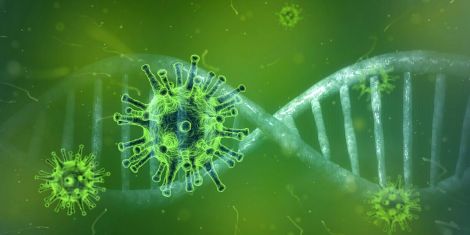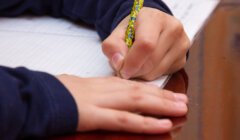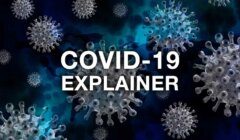Coronavirus / Health board hopeful cluster of Covid cases is under control
IT is looking “really hopeful” that the recent cluster of Covid cases is now under control, according to NHS Shetland’s interim director of public health.
Dr Susan Laidlaw also said that she suspects the high uptake of the Covid vaccine helped to reduce the spread of the cases.
She said in a media briefing on Thursday morning that a total of five people tested positive as part of the cluster, which was connected to a social gathering in Whalsay.
But with the last positive test result coming through at the end of last week, health officials are hopeful that the cluster has come to an end.
A total of 149 people were contact traced and told to isolate, but quite a few have come out of isolation already.
“It doesn’t look like at the moment that there’s been any more people that have come positive over the last few days, or nearly a week,” Dr Laidlaw said.
“But with the people who are isolating…we still need people to be vigilant, because it still can be up to two weeks after exposure that you can become positive or get symptoms. But generally it’s much earlier than that.”
The cluster of cases extended beyond Whalsay, she said, and all cases had symptoms.
Dr Laidlaw added that in the North Mainland outbreak at Christmas, before mass vaccination was underway, cases tended to spread through households.
But in this cluster this was not the case, helping to keep numbers lower than they could have been.
“I suspect and I think it [the vaccination programme] probably has been helpful in reducing that,” Dr Laidlaw said.
She added that it being summer, with people tending to spend more time outside, may have also helped to reduce spread.
When asked if she was surprised by the relatively low number of cases emanating from the cluster, she said the health board was “braced for having more cases” due to the large number of contacts.
Become a member of Shetland News
NHS Shetland chief executive Michael Dickson, meanwhile, spoke out last week to say there were some individuals not being open about their activities to contact tracers.
But Dr Susan Laidlaw said it was a “very small minority”.
“Most people were really good with the contact tracers,” she said.
Dr Laidlaw added that more people got in touch after the initial concerns.
“Compared to what we hear from the rest of the country, people in Shetland are really good at doing this. In lots of other places they have real difficulty getting through to contacts.”
Become a member of Shetland News
Shetland News is asking its readers to consider paying for membership to get additional perks:
- Removal of third-party ads;
- Bookmark posts to read later;
- Exclusive curated weekly newsletter;
- Hide membership messages;
- Comments open for discussion.
If you appreciate what we do and feel strongly about impartial local journalism, then please become a member of Shetland News by either making a single payment, or setting up a monthly, quarterly or yearly subscription.









































































